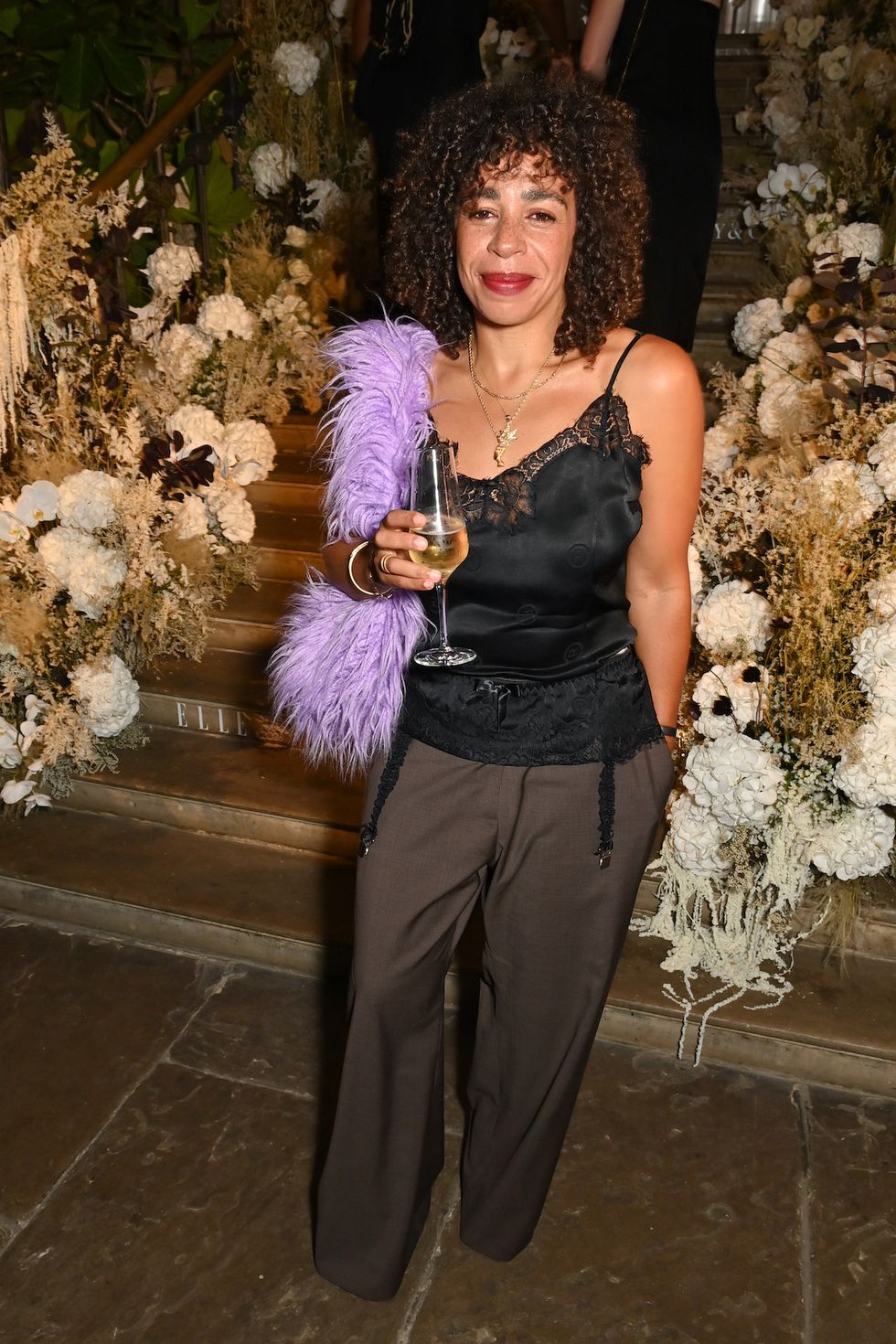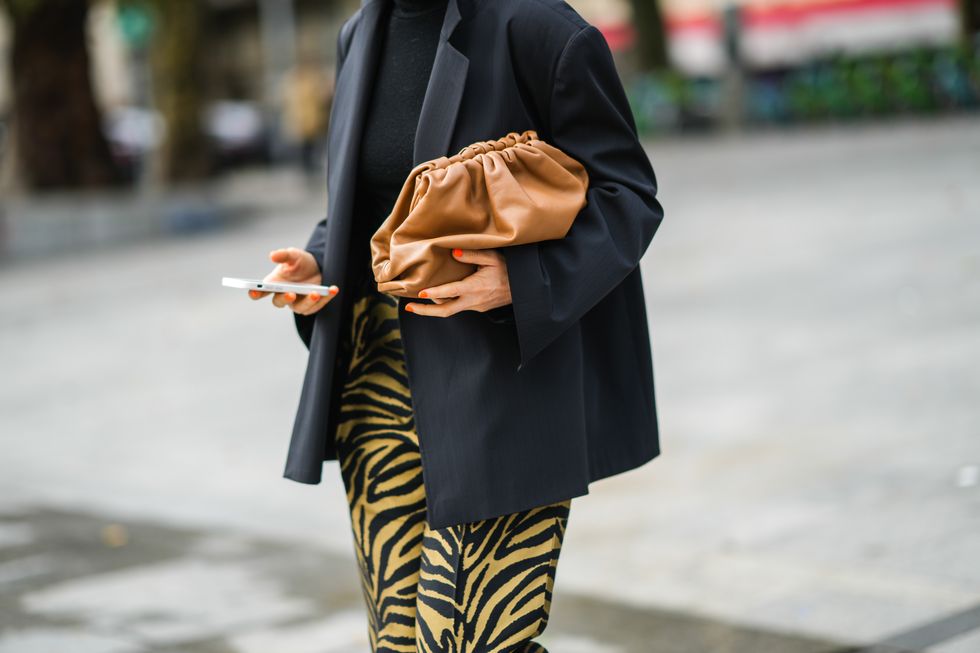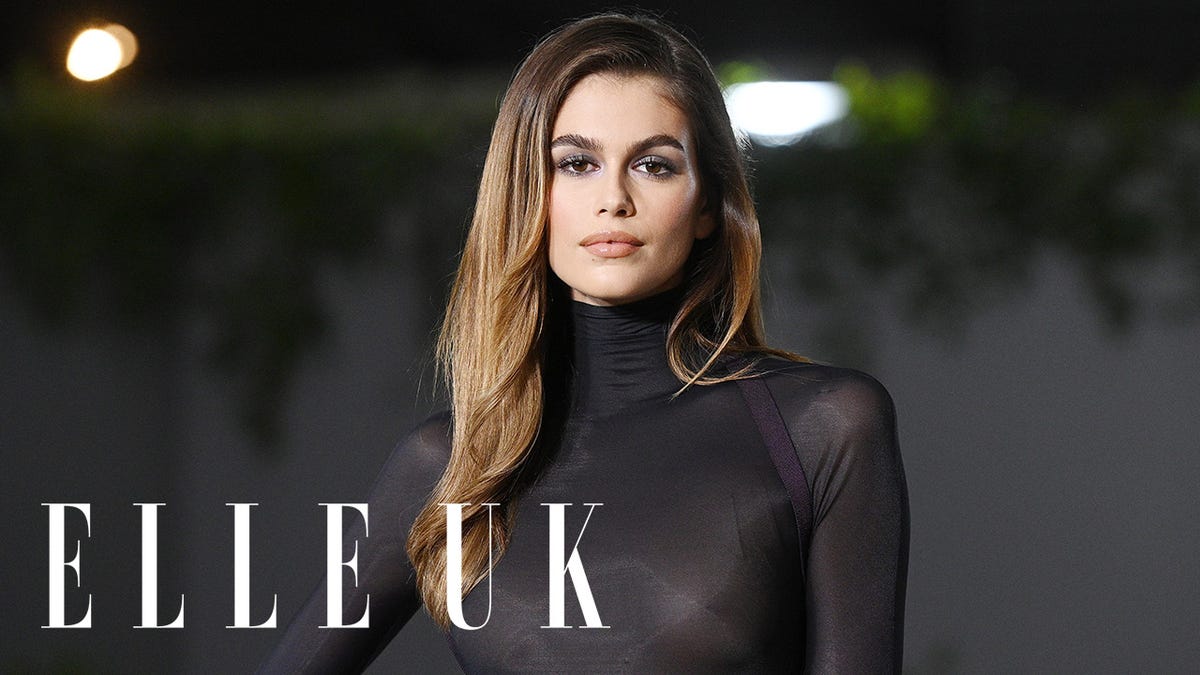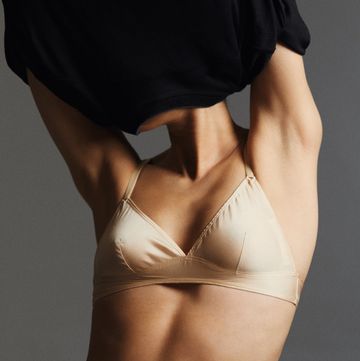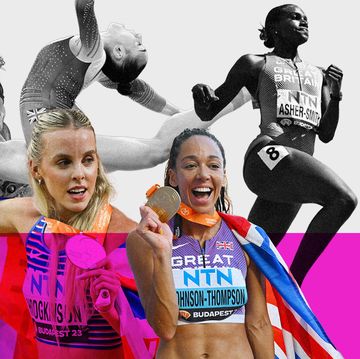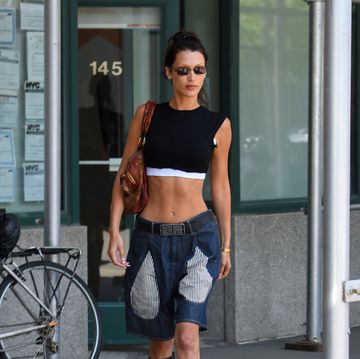As the ultimate in quiet luxury brands, a fashion show for The Row always comes with a level of whispered exclusivity. But, for their AW24 runway, that was taken up another by designers Mary-Kate and Ashley Olsen.
Prior to the show in Paris, guests were emailed with a request: 'We kindly ask that you refrain from capturing or sharing any content during your experience.' Instead, attendees were given a taste of a pre-smartphone era: they were provided with a notebook and pen on each seat.
In the week following the show, those beyond the exclusive group attending had the now-unusual experience of waiting for images to be officially released, rather than log in to Instagram and watch a video from their favourite fashion editor almost in real time. The policy has since been hotly debated.
Is it, as some say, a way for guests to experience something special live, without our usual prism of technology? Or, as others argue, is it a way to build back the walls once so firmly standing around fashion, to gatekeep it to insiders-only once again?
FIND OUT MORE ON ELLE COLLECTIVE
Newer fashion critics spoke out about how the policy ruffled some feathers. On TikTok, Rian Phin looked at how the policy 'gives more power and superiority culturally [as opposed to] revealing too much'. Odunayo Ojo, aka Fashion Roadman, published a video on his popular YouTube channel titled 'Is The Row Becoming Too Elitist?'
The Row may have caused the controversy at fashion week, but they are far from alone.
Martine Rose is a designer who has always been known to democratise fashion - a show at a marketplace in Florence last year allowed members of the public to watch on. However, she banned phones from her show in January, arguing that she wanted the people present - many of whom were guests of the models in the show - to be in the moment. 'There’s always the problem that phones pull us away, distract us and remove us so much from from the situation we’re in,' she said afterwards. Balenciaga designer Demna, meanwhile, revealed last week week that he bricks his phone (disables it) for hours of the day.
This is also mirrored beyond fashion - in a bid to keep IRL culture, well, IRL. For a sell-out gig in February, André 3000 performing his flute album New Blue Sun banned phones, and even specified this request on the back of T-shirts sold at the gigs. New York restaurant The Frog Club has a no photos policy. Cult London club Lucky Cloud has been on this for a long time - any phone pulled out on the dancefloor will receive glances of disapproval from fellow dancers. Even Gen Z, a cohort who cannot remember a time pre-smartphone, are on board - there’s a trend to take pictures with a digital camera, rather than a phone, in pursuit of that much-admired mid-Noughties indie sleaze style aesthetic.
While some of this can be understood - socialising and listening to music are activities that most people would agree do benefit from being in the moment - fashion is different. Unlike a gig or a club night, fashion shows are not open to all. They are, by their very nature, invite-only. The use of phones and images and videos from shows has, in recent years, been a much needed way to break down barriers and let more people in, allowing them to share in events, albeit virtually.
There are other implications. A phoneless fashion show is arguably a flex for The Row - a brand so expensive and loved so slavishly that it hardly has need for the halo of publicity that comes from videos shared on social media. But this is not a luxury that all brands have. With independent designers increasingly struggling, the spotlight of social media can be a lifeline, with catwalk moments like the Bella Hadid’s ‘spray-on’ Coperni dress in 2022 or the sexy posing of Dilara Findikoglu’s models in 2024 boosting reputations and driving the buzz around a brand. Older brands even use these platforms as a way to share behind-the-scenes content - see Pat McGrath’s make-up for Margiela show dominating any fashionable feed during January, or Loewe’s TikTok which celebrates the artisans behind their creations.
Ironically, with their no-phones anti-social media policy, The Row have prompted an online debate, around the accessibility and elitism in fashion. Yes, they might be in line with a wider fatigue with the dominance of smartphones but 87% of adults in the UK own one. Perhaps fashion is one industry where the positives of this digital era - democracy of access, joy in community - are worth paying attention to.
ELLE Collective is a new community of fashion, beauty and culture lovers. For access to exclusive content, events, inspiring advice from our Editors and industry experts, as well the opportunity to meet designers, thought-leaders and stylists, become a member today HERE.

